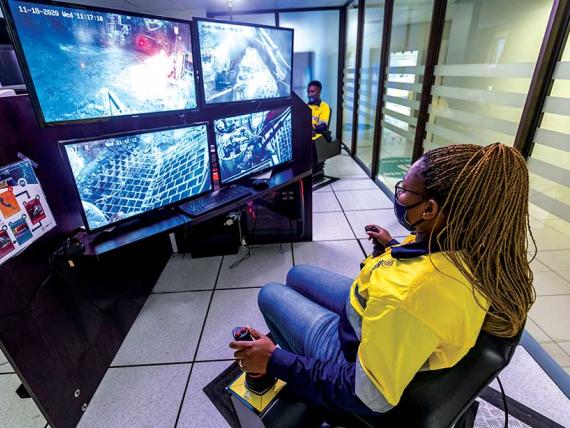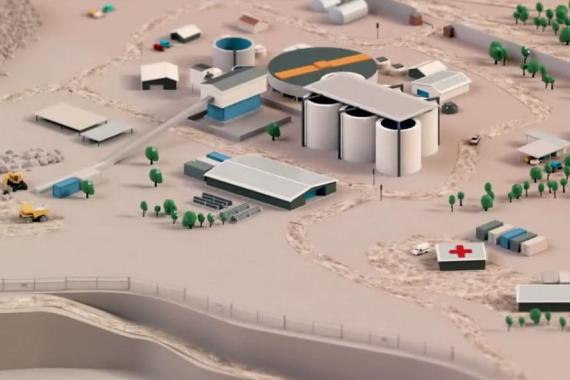The WGC has long believed that responsible gold mining supports sustained socio-economic development in countries and communities that host gold mining operations, through its contribution to jobs, tax revenue and investment in local communities. The gold industry makes a meaningful contribution to the UN’s Sustainable Development Goals. Gold itself also plays a critical role in supporting societies’ needs and is considered important across cultures globally. It is deeply understood and recognised as a source of financial security and is critical to numerous technological and healthcare applications.
Gold’s role in socio-economic development
Gold mining is a major economic driver for many countries across the world. Well-managed, transparent and accountable resource extraction can be a major contributor to economic growth due to the creation of employment and business opportunities for local people. As well as direct and indirect jobs, gold mining also brings foreign direct investment and tax revenues to countries.
Often operating in remote locations, gold mining companies invest in infrastructure and utilities. In addition to supporting the needs of a gold mine, these improvements to roads, water and electricity supplies are a long-term benefit to businesses and communities across the area, that outlives the production years of a gold mine. As gold miners decarbonise their energy sources, they can also bring cleaner power to local communities and in some locations will be a key actor in bringing low carbon electricity to the region, with potential development benefits well beyond the mine. Gold miners frequently work in partnership with host governments, communities and NGOs in the countries they operate in, identifying how best to support wider social and economic development.
Gold mining companies also have ethical and commercial incentives to improve the health and education of the communities that they operate in. Many invest in social infrastructure, including schools, colleges and health centres that improve the opportunities and wellbeing of local people. In addition, many miners provide healthcare services to their workforce and surrounding communities — from COVID-19 relief to tackling malaria. Responsible gold mining helps advance progress against the UN Sustainable Development Goals.
To read more about gold mining’s positive impact on socio economic development, click the links below:
The social and economic contribution of gold mining – Nov 2023 data update
This data update quantifies the direct social and economic contributions of 30 World Gold Council’s member companies in 2022.
The social and economic contribution of gold mining – Nov 2022 data update
This briefing note aims to help quantify the size of the direct financial contribution of 31 World Gold Council Member companies in 2021.
The Social and Economic Impact of Gold Mining, Nov 2021
The report provides quantitative insights into how large-scale mining (LSM), and specifically mines operated by World Gold Council member companies, contributes to economic advancement and improves livelihoods at a global, national and local community level.
Gold mining’s contribution to UN Sustainable Development Goals, Nov 2020
The report shows how the responsible gold mining industry is advancing progress against the UN’s Sustainable Development Goals (SDGs).
Gold and gold mining’s contribution to SDG 3,September 2021
Gold and gold mining play an important role in progressing SDG 3, ensuring healthy lives and promoting well-being at all ages.
Data from 2013 looking at the contribution responsible gold mining can make in supporting economic development in host countries.
The report looks at the social and economic impacts of gold mining, analysing both direct and indirect impacts and covering a substantial portion of corporate, costed gold production (and broadening the scope to non-Member production).
Gold’s untold story
Gold is an extraordinary metal, which has an array of unique properties which makes it irreplaceable in today’s world. Gold is used extensively in electronics but is also widely used in many other applications. It is now one of the most studied nanomaterials, and has been incorporated in a variety of products and devices. For example, gold nanoparticles are used in the billions of rapid medical diagnostic test kits produced annually, including in the COVID-19 antigen and antibody tests.
Beyond gold’s role in our daily lives , it is also at the cutting edge of scientific advancement. In our documentary series The Golden Thread, we highlight many of gold’s unique but often less well-known or hidden applications, from space exploration to wearable diagnostic electronics. Gold is being used in increasingly varied and innovative ways and continues to help shape the world around us.


